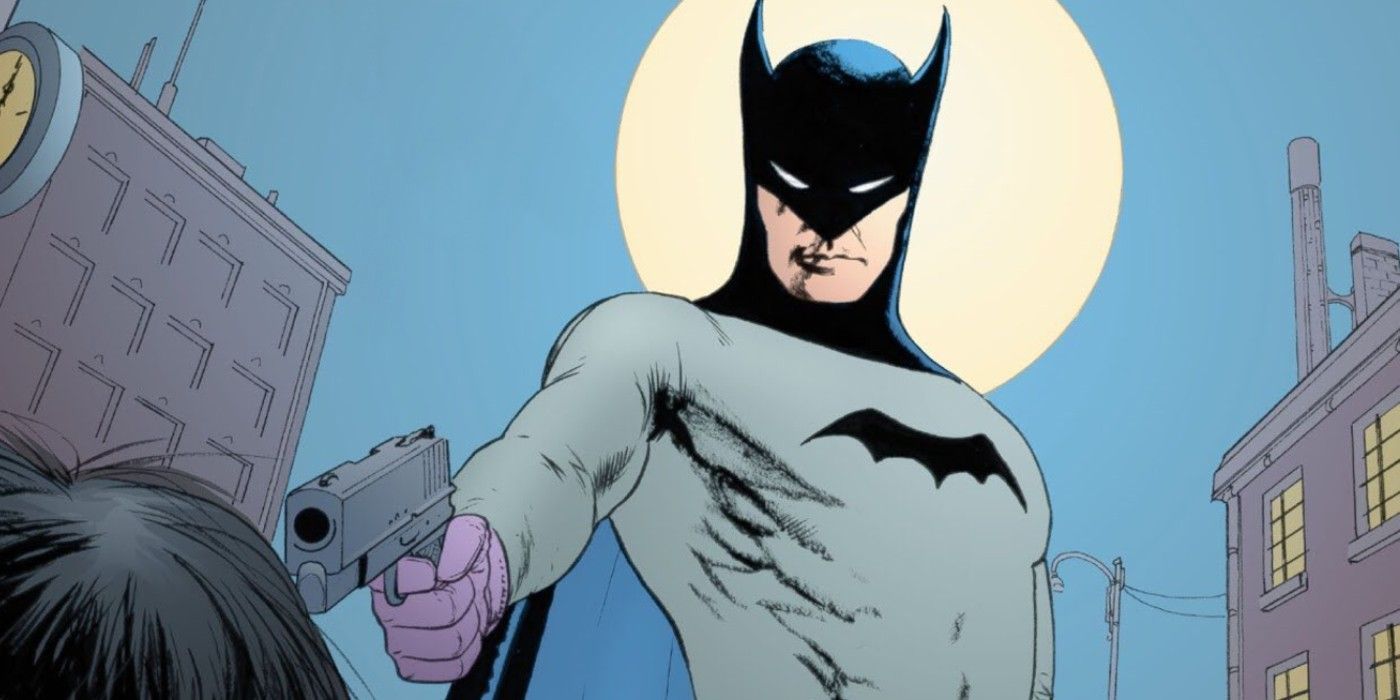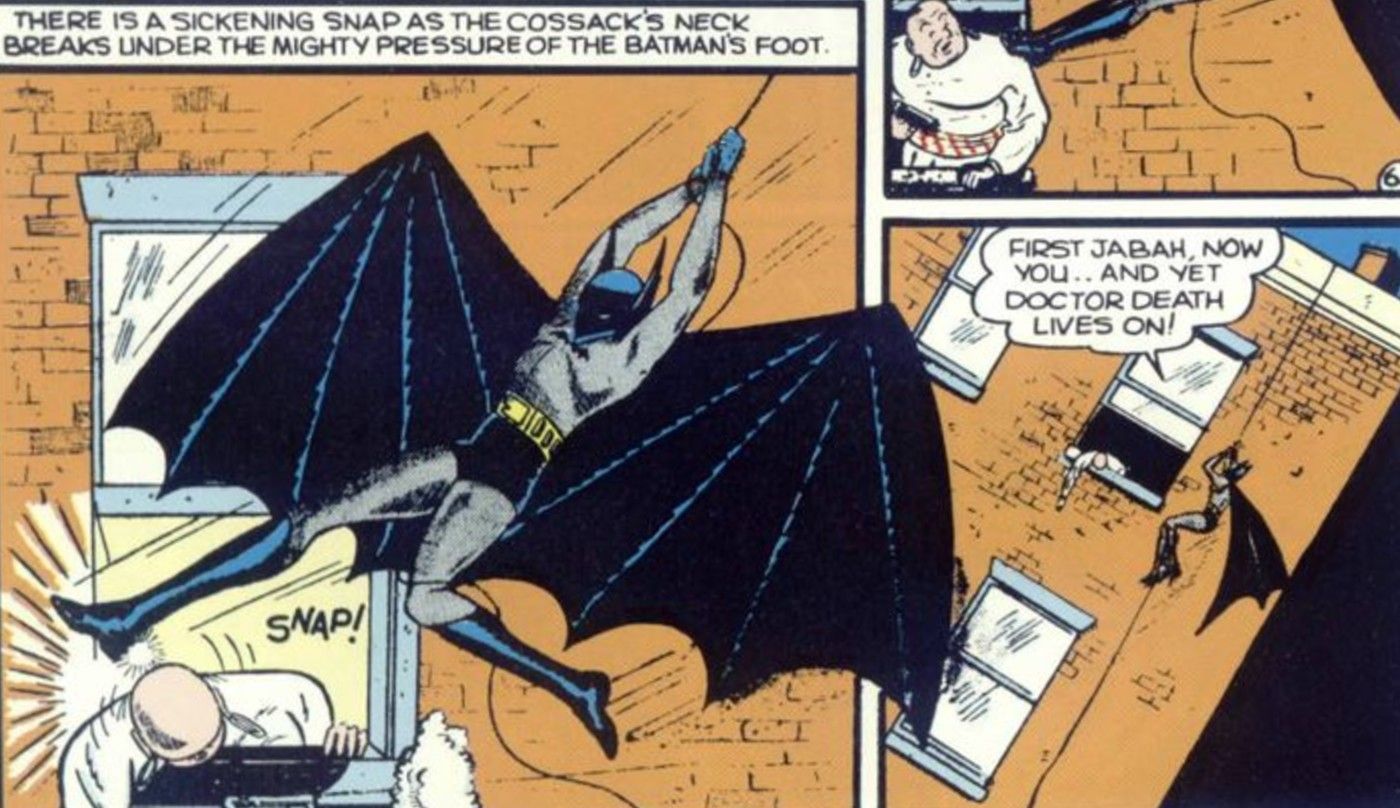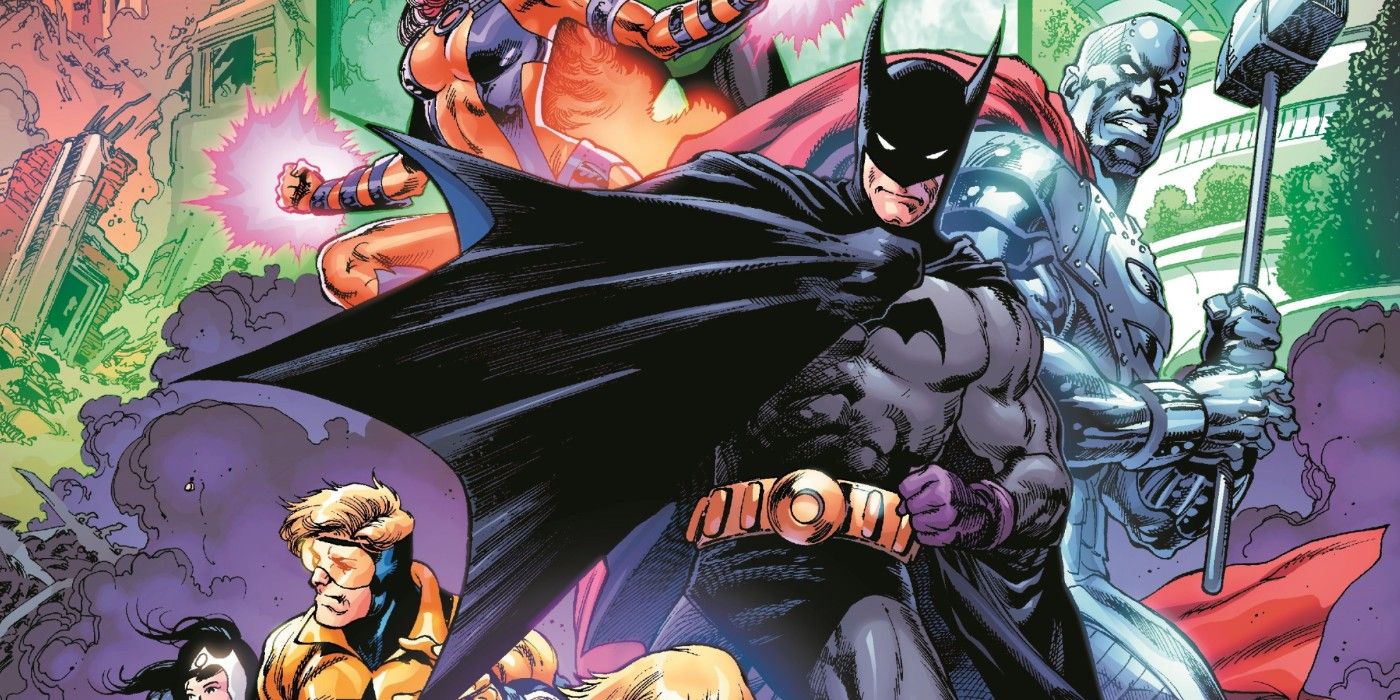DC Comics' vast Death Metal event concluded recently, elevating Wonder Woman to the role of cosmic protector and reunifying the vast comic Multiverse in which she resides into an Omniverse. In this new Omniverse, DC characters are no longer bound to a single canonical history, but rather informed by everything that's come before, and even sometimes alternate histories and possible futures. It's a staggering move on DC's part, but one which brings the reality in which their characters live more in line with the way in which they're portrayed, with each character the result of all the stories told about them. It's potentially a huge step forward for how comics interact with pop culture. The only problem is that in bringing diverse histories together, there are a few wrinkles DC needs to iron out.
Created in 1939's Detective Comics #27 by Bob Kane and Bill Finger, Batman is a pop culture icon: a billionaire playboy who makes war on crime in memory of his parents, who were slain in an attempted robbery. Dark, brooding, and obsessive, Batman maintains his moral high ground thanks to his unbending moral code, which includes his famous 'one rule' - no killing. The problem is, Batman actually used to be fine with killing his enemies.
The thing is, that one rule was actually a later addition to the character, slipped in around Batman #4, in which Batman reminds Robin to use the flat of his sword in a battle against a crew of pirates, saying, "Remember, we never kill with weapons of any kind!" The change was likely intended to address a growing distrust of comics by moral crusaders, but the rule was decidedly absent in Bruce's first adventures, in which he's depicted snapping necks and even hanging one villain from his Batplane. Later reboots and Crisis events would make it clear that in DC canon, Batman had officially always lived by this rule, but with the dawning of the Omniverse, the original, murderous Batman can't so easily be forgotten.
In discussion with Wonder Woman, one of the Hands - the beings who are remaking reality - explains, "First all history, all stories, will be remembered and set once and for all." Later in Scott Snyder and Greg Capullo's Dark Nights: Death Metal, the Flash reiterates that, "As we know, with Diana's sacrifice, the timeline was unknotted once and for all and all our memories returned. ... With our past finally set, myriad new futures are opening up. And as hypertime heals, we'll likely experience flashes of them -- and even alternate pasts -- in pretty epic fashion." What this process actually looks like was explored in Greg Rucka and Mike Perkins' Lois Lane: Enemy of the People. Here, Lois discovers that some people have gone through a process she calls "unification," tapping into the lives they've lived in other realities and experiencing multiple pasts, becoming a unified version of multiple potential selves.
Because of this, DC's new Omniverse should see Bruce Wayne experience vivid memories of being the original, lethal version of his crime-fighting persona. It's possible DC will even have Bruce confront this, as the original Batman is currently one of the heroes assembled for its cross-time Generations Shattered story, showing there's no desire for fans to simply forget this iteration ever existed.
Unlike other heroes, who will experience memories of alternate realities in which they were very different people or made hard choices under impossible circumstances, Batman's unification involves confronting his original self - one who wholeheartedly chose murder. Many modern stories have flirted with the idea of Batman breaking his one rule, always offering some justification for why it didn't count (as when he shot Darkseid, a living idea, in Final Crisis) or offering a get out (when he left the Beast for dead in 2018's Batman #57, but could have known he'd be saved.) In the Omniverse, however, the new Batman will be someone who, for all intents and purposes, already broke that rule multiple times and now remembers being absolutely fine with it. How will Bruce Wayne confront this dark new corner of his psyche, and could it mean the unified Batman will struggle to stick to a vow that for many fans has come to define the character?



